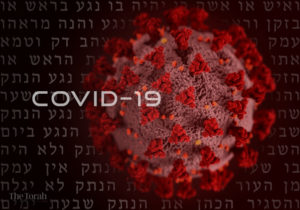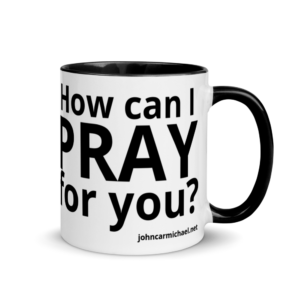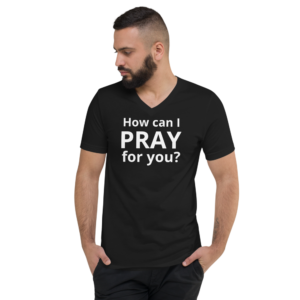Take Your Medicine: Covid-19, God’s Word, and Healing

Image: https://www.thetorah.com/blogs/coronavirus-what-we-can-learn-from-the-bible-and-the-ane
Follow The …
To stay healthy during the COVID-19 pandemic, we have been told to “follow the science” and take what is affectionately called the “jab” (a term that refers to the COVID-19 vaccine.) We, a society of individuals, debate the vaccine’s necessity, its effectiveness, and its long-term ramifications. There is so much information and counter-information many are understandably confused. To vax or not vax should be a decision made by the individual.
To stay healthy and receive divine healing, we should follow the Scriptures. Like the debate surrounding the vaccine, there is much debate over divine healing and health. This post assumes the belief that divine healing is in the atonement of Jesus and therefore is available to everyone through faith in Him. There is certainly some mystery about divine healing, the Bible is clear that divine has happened in the past. Additionally, there is enough verifiable evidence of the occurrence of divine healing still happening today. This leads to a question as to how one receives divine healing. Does the Bible give us a “prescription” as to how one might consistently receive healing and stay in divine health?
(NOTE: Some readers may want to skip to the “How Do We Take God’s Word As Medicine?” further down in the post.)
Take God’s Word As You Would Take Your Medicine
To answer that question, this post turns to Proverbs 4:20-22. It says, “My son, give attention to my words; Incline your ear to my sayings. Do not let them depart from your sight; Keep them in the midst of your heart. For they are life to those who find them And health to all their body.” This passage is saying that intentionally hearing God’s Word is medicine to the physical body. To help us examine this passage, we look to Knut Heim’s, Poetic Imagination in Proverbs: Variant Repetitions and the Nature of Poetry points out that even though there are attempts to smooth over “my words” to read “understanding,” it is an error. He believes the text is more focused on “turning one’s ear to actual sounds, such as those produced by spoken words.[1]” Jeff Levin and Keith Meador point out using the Torah for physical healing was practiced by the Jews in their book, “Healing to All Their Flesh.[2]” In the book, they write about Rabbi Joshua ben Levi, who is credited as having taught about the healing power of the Torah. He said,
If he feels pains in his head, let him engage in the study of the Torah, since it is said: ‘For they shall be a chaplet of grace unto your head…’ If he feels pains in his throat, let him engage in the study of the Torah, since it is said: ‘… and chains about your neck.’ If he feels pains in his bowels, let him engage in the study of the Torah, since it is said: ‘It shall be a healing to your navel…’ (Proverbs 3:8). If he feels pain in his bones, let him engage in the study of the Torah, since it is said: ‘… and marrow to your bones…’. If he feels pain in all his body, let him engage in the study of the Torah, since it is said: ‘… and healing to all his flesh.’[3]
Levin and Meador propose more research between the Torah and healing is needed. They said that this tradition of prescribing readings of the Torah and receiving healing is an established practice with the Jewish people. The point here is that there seems to be a connection to hearing the Word of God and receiving divine healing.
What type of healing is spoken in this passage? We note that the LXX uses the Greek word ἴασις, which is translated as “health[4].” The BDAG further explains that this word’s range is “restoration to health after a physical malady, deliverance from a variety of ills or conditions that lie beyond physical maladies, cure, deliverance.[5]” Therefore, it would be a mistake to force this “healing” to refer to spiritual or mental healing, although those certainly are included. Physical healing is the immediate context of this verse. This verse is teaching us that as we pay attention to the Word of God with our ears, mind, and mouth it helps our flesh stay healthy and heal from disease.
Hearing God’s Word Helps Us Connect To Divine Healing
The connection of hearing God’s Word and receiving divine healing is supported in Romans 10:16-17, “However, they did not all heed the good news; for Isaiah says, ‘LORD, WHO HAS BELIEVED OUR REPORT?’ So faith [comes] from hearing, and hearing by the word of Christ.” Paul Achtemeier’s “Romans. Interpretation, a Bible Commentary for Teaching and Preaching” is one of the guides for this pericope. He states that one of the most significant importance of these verses is the focus on hearing[6]. He writes, “But even had the New Testament been available so that people could have read it, that would not have served as a substitute for the apostolic preaching.[7]” Even though Paul wrote letters that would eventually become part of the NT, he believed that his physical presence and preaching would be far superior to the letters, see Romans 1:9-13. Achtemeier thinks that Paul is saying that hearers bear a burden to listen, and preachers bear an obligation to preach[8]. “One’s relationship with God may depend on how carefully one listens and understands what is being said! Therefore, our passage implies a warning against careless hearing since hearing is the key to trust in God.[9]” Paul put much emphasis on preaching’s role in igniting faith in the hearer. He says that one can respond to God appropriately in the preaching and hearing of God’s Word[10]. This pericope supports the point of this post that hearing God’s Word assists in receiving divine healing. The development of faith in Jesus and His atoning work is an essential connection in the transmission of divine healing.
Textual criticism of this verse is necessary. There are a couple of variations in translation. Some variants are translated as “word of God” or “word of Christ.” Richard Longenecker’s commentary, “The Epistle to the Romans: a Commentary on the Greek Text,” provides some help in this area. He believes the evidence supports the “word of Christ” is original, replaced by a more acceptable “word of God.”[11] He also notes the connection of this verse to Isaiah 53. It is his opinion that Paul’s inclusion of Isaiah establishes the relationship between faith and preaching[12]. Is it a coincidence that the chapter establishing healing in the atonement (Isaiah 53) is used in tandem with the pericope setting preaching’s role in developing faith (Romans 10:16-17)? Is this Providence for this thesis? God knows.
How Do We Take God’s Word As Medicine?
Here are three suggestions for taking the Word of God to receive divine healing:
- Study, not just read, the Bible paying close attention to passages that directly deal with healing. Start by studying these passages:
- Isaiah 53:1-5 – these verses connect healing to the atonement of Jesus.
- Matthew 4:23 & 9:35 – these verses connect healing to the ministry of Jesus.
- James 5:14-15 – these verses connect healing to the practice of the Church.
- Intentionally and intently listen to Bible-based Christ-centric sermons about healing. Look for healing services that have sermons preached as well as prayer and ministry of healing.
- Develop a list of Scriptures concerning healing that mean something to you. Read them aloud daily. You might want to search for Scriptures that would connect to the specific issue you are dealing with. For example, if you are having ankle or feet issues, you might look at the Acts 3:6-8 passage concerning the healing of a man’s feet and ankles at the gate Beautiful.
It Has Helped Me Receive Divine Healing
I have done these steps several times to receive healing. Once I injured my knee during while training for a marathon. The injury would require minor surgery to repair it. If I wanted to have the surgery, I would have, but I was at a place that I knew God wanted to heal it another way. Every day for a few weeks, I would speak the Acts 3:6-8 scripture over my legs. I know this sounds strange, but I would speak the verses to the knee like I would be talking to someone. After a couple of weeks, my knee was completely healed. That was over four years ago.
Please note that the healing of my knee was not immediate, and I was diligent in applying the Word of God to my knee daily. To some, they want prayer and an instant miracle. Praise God for instant miracles because of a simple prayer. Those types of healing miracles do happen. Be aware that, in the ministry of Jesus, the “multitudes” were healed in and around preaching sessions of Jesus (see Matthew 4:23 & 9:35). These people had taken large amounts of Jesus’ teaching and preaching. They were ready to receive healing.
One Significant Way To Recieve Divine Healing
God is a healing God. There are many ways for us to receive healing. Spending time studying and listening to the Word of God concerning healing is one of the significant ways we can consistently receive divine healing and walk in divine health.
Footnotes:
[1] Knut Martin Heim, “Poetic Imagination in Proverbs: Variant Repetitions and the Nature of Poetry”, Pennsylvania State University Press, 2012. ProQuest Ebook Central, http://ebookcentral.proquest.com/lib/oru-ebooks/detail.action?docID=3155671, 83.
[2] Jeff Levin, and Keith Meador, “Healing to All Their Flesh: Jewish and Christian Perspectives on Spirituality, Theology, and Health,” West Conshohocken, Pa: Templeton Press, 2012, 107.
[4] “G2392 – iasis – Strong’s Greek Lexicon (NASB).” Blue Letter Bible. Accessed 20 Sep 2020. https://www.blueletterbible.org//lang/lexicon/lexicon.cfm?Strongs=G2392&t=NASB.
[5] Walter Bauer and Frederick W. Danker, “ἴασις,” in A Greek-English Lexicon of the New Testament and Other Early Christian Literature (Chicago, Il: Univ. of Chicago Press, 2000), 465.
[6] Paul J. Achtemeier, “Interpretation, a Bible Commentary for Teaching and Preaching,” Atlanta: Westminster John Knox Press, 1985. https://search-ebscohost-com.oralroberts.idm.oclc.org/login.aspx?direct=true&db=nlebk&AN=41343&site=eds-live&scope=site, 173.
[11] Richard Longenecker, The Epistle to the Romans: a Commentary on the Greek Text, Grand Rapids: William B. Eerdmans Publishing Company, 2016, 792.





